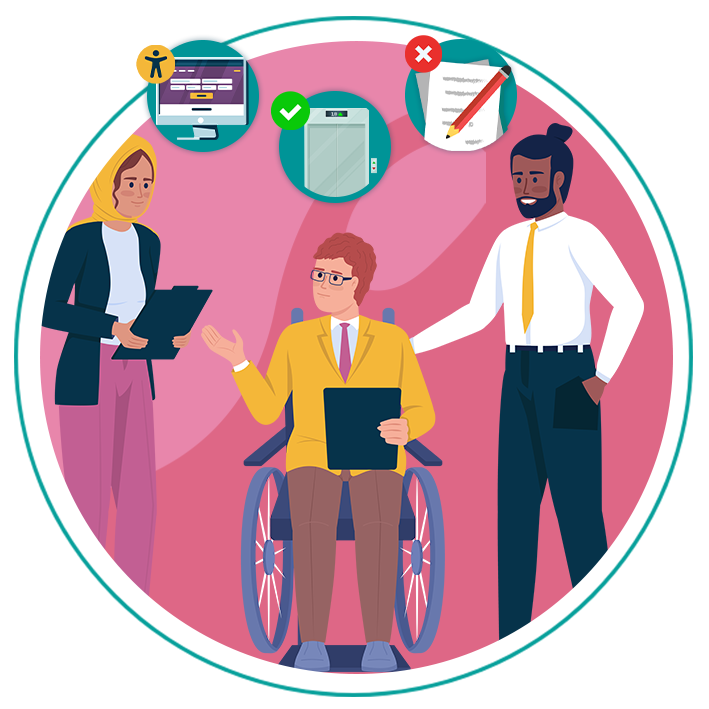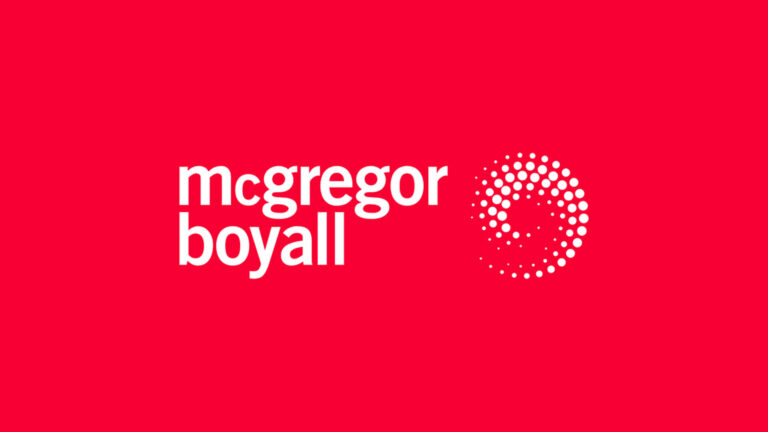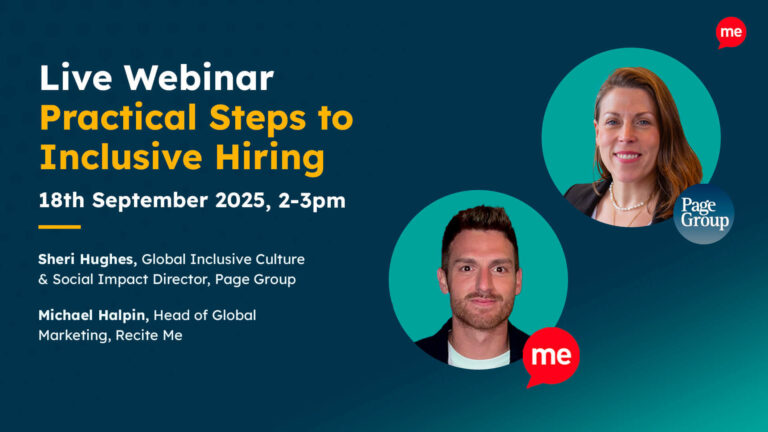Guest Blog: Alex Lamont, Jobtrain
Alex Lamont is part of the marketing team at Jobtrain. Jobtrain is an applicant tracking system provider with clients of all sizes and sectors, but we’re proud to say we’re “more than an ATS” – working with our clients to get the most out of their hiring strategy in the form of services like our Talent Intelligence team. We’re passionate about accessibility in all of its forms and have partnered with ReciteMe for many years now, integrating their accessibility toolbar into our careers site. This is with the aim of ensuring our clients have an accessible and inclusive hiring strategy that brings out the best in hiring teams and jobseekers alike.

Picture this – a highly skilled candidate with autism has reached the interview stage of your hiring funnel. They’re excited about the role and you’re excited to meet them! They could have incredible attention to detail and problem-solving abilities, but they might struggle with maintaining eye contact or interpreting non-verbal cues. If you – as the interviewer – rely heavily on interpersonal interaction as a measure of competence, you may risk missing out on this candidate’s valuable skills. So how do you make sure your interviews are inclusive and get the most from neurodivergent candidates? What do you need to consider?
Be flexible with neurodivergent candidates
Flexibility. Flexibility. Flexibility! Be prepared to adjust your tried-and-true interview process depending on who’s attending. It’s alright if you’re someone who feels most comfortable with planning ahead, that just means you’ll need to pull out the binder of preparation so you can make your candidate feel as comfortable as possible. After all, a comfortable interview is a good interview! The best way to achieve that flexibility is by being prepared for it. It may sound silly, but ask a candidate if there’s anything they need – such as assistive technology – that will make their interview more inclusive! Some candidates will be so nervous thinking about the role that they might not tell you they need something. We all let things slip sometimes! The only way to be sure is if you – the organisation – ask.
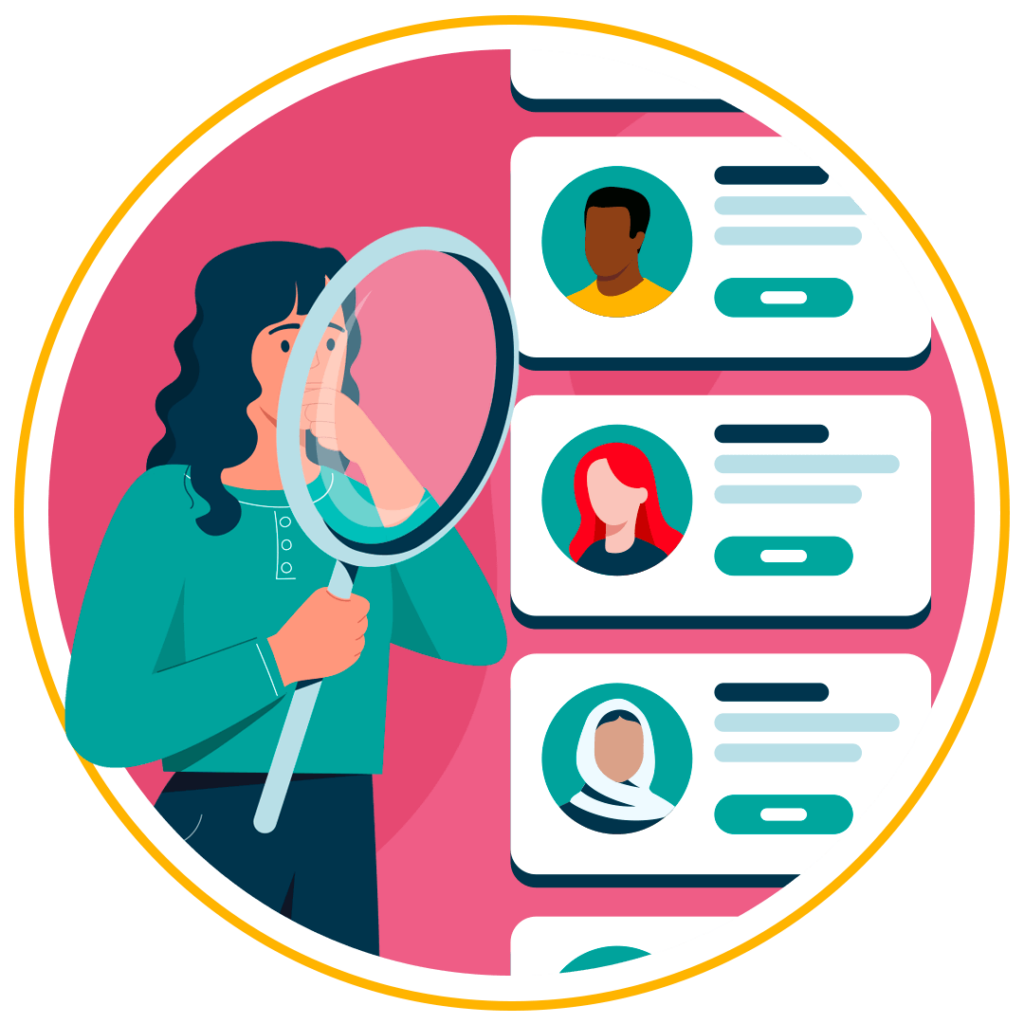
Provide clear expectations in advance
A neurodivergent person might prefer structure and predictability, so consider providing interview questions ahead of time so they can prepare thoughtful, well- considered responses. This might seem unconventional – and you might worry that someone overprepares, but think about the role you advertised. Does it require on- the-fly decision-making or scenarios that might make someone feel like a deer in headlights? Or does it require thinking ahead, preparedness, and hard work? This levels the playing field for those who excel in processing information and formulating ideas when given time to think, rather than being put on the spot! To be honest, you don’t need to be neurodivergent to enjoy this sort of confidence boost before an interview!
Offer alternatives to traditional interviews
Not all roles require mastery in face-to-face communication, so why should that be the main focus of interviews? Depending on the role, consider allowing candidates to submit written responses, participate in task-based assessments, or even pre-record answers! For roles that require technical skills, hands-on tasks or problem-solving exercises could give neurodivergent candidates the opportunity to shine in a way that verbal questioning might not.
Create sensory-friendly environments
For individuals with sensory sensitivities, interview environments can sometimes be overwhelming. Bright lights, noisy surroundings, or strong smells can cause discomfort or distraction. Conduct interviews in quiet, calm settings and consider allowing candidates to choose environments where they feel most comfortable, such as remote interviews from their own home.
Allow for different communication styles
In neurodivergent candidates, communication styles can vary widely. Some may be more concise, others may take longer to answer questions, or may not use conventional body language such as eye contact. It’s important that interviewers understand these differences and adjust their expectations accordingly. Judging a candidate based on a neurotypical communication standard can lead to bias and exclusion. Instead, focus on the content of what they’re saying rather than how they deliver it.
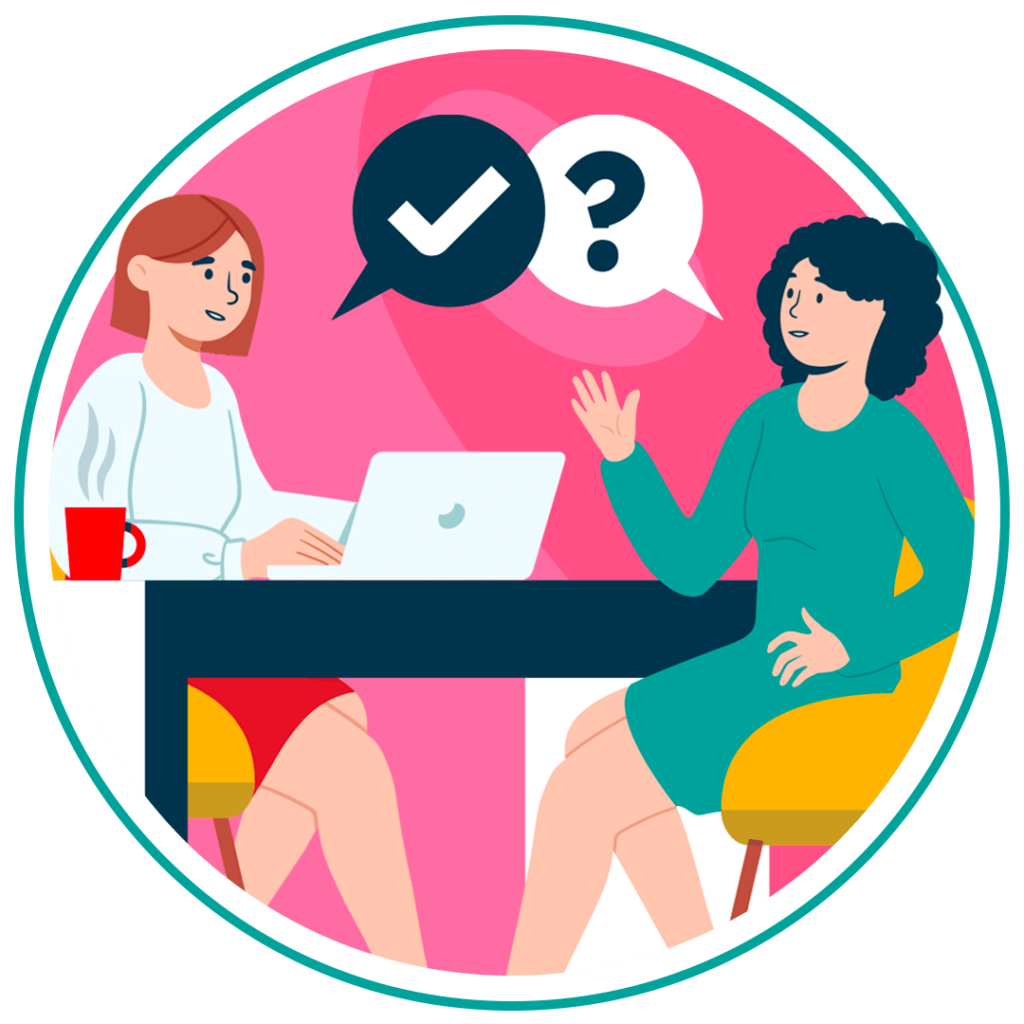
Consider breaks! Especially for long-winded interviews, ask a candidate in advance if they would like a break during the interview, and if they say yes, schedule it in as a matter of fact! According to Standout CV, the average technical role interview lasts an hour – that’s a long time to sit still while the spotlight’s on you!
The intensity of an interview, especially when lengthy or back-to-back, can lead to fatigue or stress. Offering breaks can help candidates recharge, ensuring that they are able to present their best selves throughout the process. Even short, structured breaks can reduce anxiety and prevent cognitive overload.
The benefits of inclusivity
Creating an inclusive interview process isn’t just the right thing to do; it’s also a smart business move. By removing barriers for neurodivergent individuals, companies can tap into a broader talent pool filled with people who bring unique problem-solving skills, creativity, and focus to their work. Studies show that diverse teams are more innovative and perform better – inclusivity benefits everyone, not just those directly affected by it. That counts for the recruitment funnel outside of the interview stage as well! If you don’t have an accessibility toolbar – now is the time to start exploring it as an option! To quote Charlie Cruickshanks, Talent Acquisition Partner and Co-Lead of SEEN: “Recite Me is a great tool to help candidates who are neurodiverse. 1 in 7 of us in the UK is understood to be neurodivergent.” That’s a lot of people who are neurodivergent! They might need an accessibility toolbar to apply for work, but especially for the candidates that excite you, you want to make sure they show off their best selves in the interview room. So always remember – flexibility!
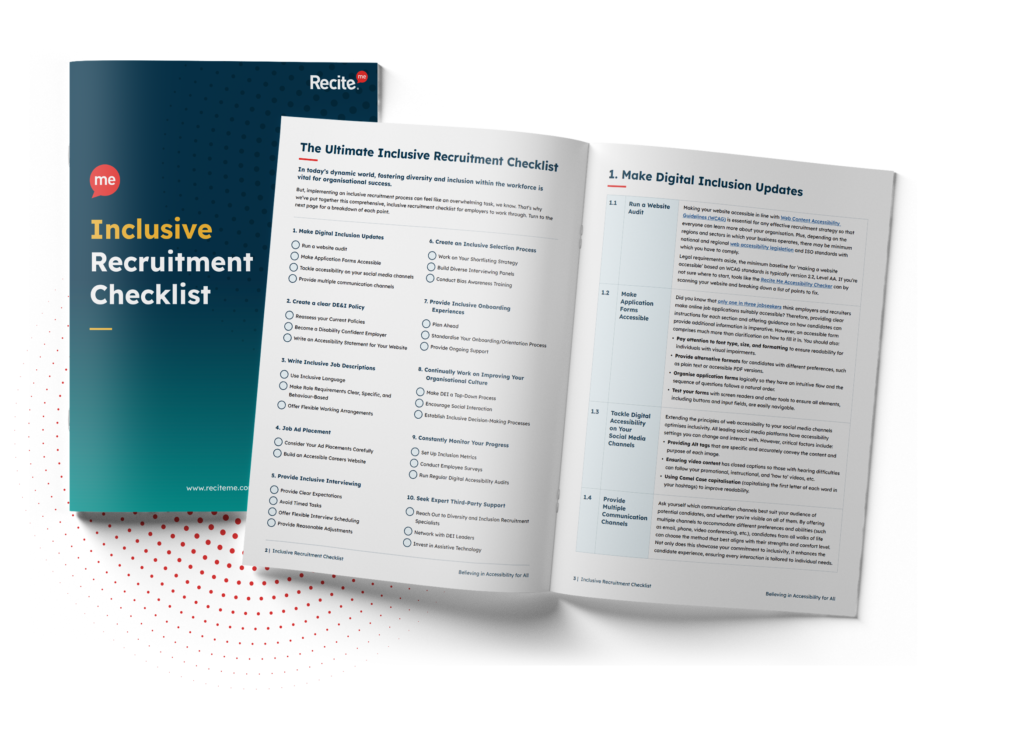
Download Your Inclusive Recruitment Checklist
Attract the best talent for your organisation by becoming an inclusive employer!
Inclusive recruitment doesn’t have to be complicated. This checklist breaks down everything you need to know to attract and retain diverse candidates. Download your checklist today and get started right away.
